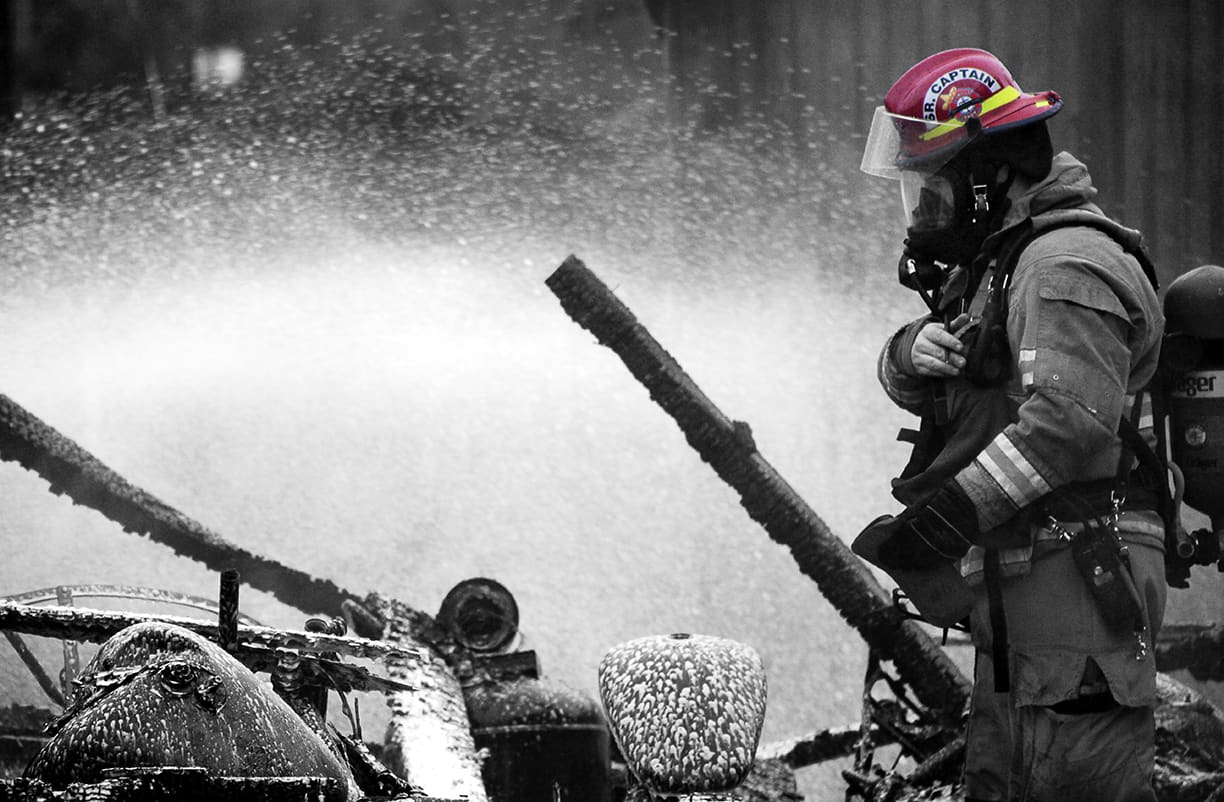Get the help you need right now 855-900-8437 Get Help Now
Get the help you need right now 855-900-8437 Get Help Now
July 13, 2017
It’s no secret that marriage is hard. Throw in a house to manage, a couple of kids and a spouse who is a fire fighter and it becomes even more challenging. But just because it’s difficult doesn’t mean that it’s not worth fighting for.
As a fire fighter/paramedic, your spouse is at an increased risk of post-traumatic stress disorder (PTSD) and other behavioral health issues. From binge drinking to drug abuse, fire fighters are susceptible to a variety of addictions and substance use disorders.
Maybe your spouse shows subtle signs of PTSD. Maybe your spouse is drinking more than usual. Whatever the change may be, it’s important to remember that marital issues can often result from undetected or unresolved mental, physical or emotional trials. It can be difficult to stand by and watch your fire fighter struggle, especially when it directly impacts you and your family.
And while the burden is not solely on you to protect your spouse, there are several things you can do to help and encourage your fire fighter spouse.
It can be difficult to balance a fire fighter’s schedule, with 24-hour shifts and irregular sleep schedules. But embracing the lifestyle, instead of constantly comparing it to the typical work schedule, can be a first step toward creating a healthy balance.
There’s no denying that it can be difficult for your spouse to attend soccer games, make time for social engagements with friends or even take a weekly exercise class or go to church. It may even be a challenge to have a 15-minute conversation about the kids’ camp schedules or the upcoming visit from the in-laws. But instead of fighting it, come up with a system that works.

For some, the challenges of being a fire fighter’s spouse extend beyond juggling complex schedules and finding ways to communicate. Because substance abuse and mental health issues are so prevalent, it’s important to keep an eye out for the signs and symptoms of both.
Extreme changes in mood or behavior, frequent nightmares and physical reactions and distress are all signs of PTSD. Excessive sniffing or a runny nose, significant changes in eating habits, dilated pupils or red eyes, and irritability and defensiveness are just some of the symptoms of substance abuse. Being aware of the warning signs of substance abuse and other co-occurring disorders is the first step to helping your significant other overcome such a struggle.
If you’ve assessed the situation and believe your partner may be suffering from substance abuse, it’s equally important to be supportive without enabling. There are ways to help your spouse without unknowingly encouraging or prolonging their drug or alcohol abuse:
A fire fighter’s role in the home and at the station is a dynamic mix of responsibilities and care. With so much invested in both locales, some may turn to alcohol, drugs or other substances to manage, especially when there are underlying issues such as anxiety or depression. If your spouse is experiencing any of the following, it may be time to reach out for help:
As a fire fighter’s spouse, you may also carry a burden in understanding and managing your spouse’s substance use. Remember that it is not your fault, but there are things you can do to help, such as encouraging your husband or wife to seek treatment. The IAFF Center of Excellence for Behavioral Health Treatment and Recovery can help. The only facility of its kind, this treatment center has a team of experts who understand the life of a fire fighter and the unique needs of IAFF members.
Call 877-837-4346 to speak with a specialist who can help you navigate the complexities of addiction and mental health.
Things to keep in mind when calling the IAFF Center of Excellence:
If you ever feel overwhelmed or alone, you can always call the IAFF Center of Excellence hotline to speak to a caring representative who can provide you with guidance. By standing alongside your spouse in solidarity, you can work together to overcome the unique challenges that fire fighters face.
Medical Disclaimer: The IAFF Center of Excellence aims to improve the quality of life for people struggling with a substance use or mental health disorder with fact-based content about the nature of behavioral health conditions, treatment options and their related outcomes. We publish material that is researched, cited, edited and reviewed by licensed medical professionals. The information we provide is not intended to be a substitute for professional medical advice, diagnosis or treatment. It should not be used in place of the advice of your physician or other qualified healthcare provider.